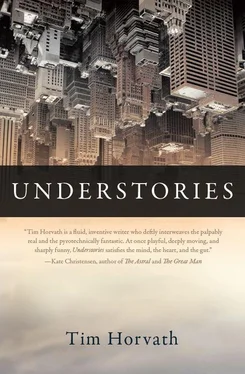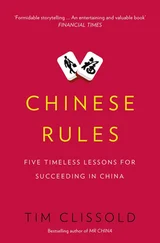In short, it is a tome to marvel at, and to pick up and browse at will. And it has just arrived on the shelves of the Mid-Manhattan Library right at Fortieth Street and Fifth Avenue, shelved logically under Dewey classification ________.________P, ready to be checked out, gaped at, ogled, handled, caressed, ignored, flung, tiger-charged, and any of the other innumerable postures available within the Kama Sutra of the readerly imagination that books might be seduced into trying in the middle of the year AD 19 ________.
We, too, were part of that collective effort, and felt our responsibility as burden and badge. I can recall a garage sale: neighbors, the Larsens. My mother was picturing their furniture, mentally rearranging it in our house, while my father walked around as if he were at a hands-on museum. He seemed to be particularly drawn by the most impractical items — a battery hold-down for cars that had not been manufactured in decades, a set of binoculars that were unwieldy even for that time. I remember him calling us over, turning the knob of the eyepiece while panning around as he said, “These once belonged to the Margolises, and now I’m going to buy them for a song from the Larsens. And we’ll probably hold a garage sale of our own in a few months, at which point, hopefully, I will dump them off to someone else.” He looked sagely at Aidan and me. “You see,” he said in a hushed tone, “the way things make their way even around our little neighborhood.” I don’t recall ever having a garage sale.
Do all families have such unifying themes? And if not, what replaces them? How, otherwise, do they make sense of it all, bring together the noblest and the basest in their histories within a single binding? We were driving to Detroit, once, to see Uncle Gerry. It was the excitement of anticipation — the big city and greasy roadside fare along the way. As we pulled back on the highway after a stop at a diner, my body betrayed me with a riptide of a fart. Aidan immediately began writhing and pinching his nose. He cranked down his window, air rushing into the car. It smelled worse outside, at that moment in eastern Michigan. My hair whipping up, I reached over and, his own hand grabbing my arm midway up, wrestled him. I was bigger, stronger — that was before Aidan shot up and overtook me in every physical sense — but he was next to the handle. My mother’s “Boys, stop that!” could barely be heard in the melee, when my father’s voice roared over the wind: “Now listen here. We’re going to track that fart for The Atlas, by God, Jay. I’m putting you and Aidan in charge of those pages. And if anyone’s going to open up the window, you’d better make note of exactly where we are!” Yes, we were reduced to howling laughter, and the fighting was subdued, but more, that fart became the stuff of legend. Years later, we’d mime unsuspecting readers whistling with exaggerated innocence as they flipped through the pages, and then overacted scratching of heads, and eventually wide-eyed horror.
Only later, once my mother had divorced my father and removed herself several states from his lingering charms, did I learn that she’d been skeptical of the book’s ever seeing the light of day. And, indeed, her doubt was justified — when my father eventually went into the hospital, the complications ensuing from a laryngectomy gouging his ability to take care of himself even more acutely than his ability to speak, I was given the charge of cleaning out his apartment. By this point, he was headed for assisted living if he made it out of the hospital. As I rummaged through his stuff, mostly books and papers, but also a remarkable collection of rocks, I came upon only bits and traces of anything like a work in progress. There were pages and pages of research notes, written out on legal pads and on the blank sides of manuscript pages, and copies of maps with incomprehensible annotations and arrows plunging and swooping about, but nothing that even approximated a coherent text. I tried to keep together anything that I thought might have belonged in The Atlas. It turned out that his apartment abounded with as much pornography as geography, and the former made more sense, at least, to one sifting through the detritus of a life lived largely alone. As I worked, I noted the relative heights of the two piles, rooting for The Atlas pile but knowing it would likely be a dead heat.
At various points in what felt like an excavation, I would phone Aidan to discuss what to do with certain items that looked like they might have value — this sterling silver unpromisingly packed in a crushed cardboard carton, a broach that depicted a woman — our grandmother? — in solemn sepias. During these conversations, I felt as though Aidan was making a concerted effort to avoid sounding impatient, and I was made starkly aware of how different we were, how successfully he’d managed to extricate himself from the radius of our father’s magnetism. He was a stockbroker in New York, trading in oil futures, and, if his standard of living was any gauge, damned good at it. I was somewhat fascinated by what he did. Sometimes I’d come across a book about Wall Street while contemplating library purchases, and I’d seize the opportunity to consult with him.
“Sure,” he’d say. “If someone in Michigan wants to read about the New York financial markets, that sounds as good as anything else.”
Sometimes I was more direct. “What is it that you do all day?”
He’d shrug aside the question. “It’s not really interesting. Then again, it’s not supposed to be. Only type interest that matters to my company is percent on the dollar.” He had an accent that I otherwise heard only on television and in movies.
It was the same when it came to asking Aidan about being a parent. His answers were terse; there was the occasional extended anecdote, usually about something “cute,” like his daughter’s “One of Everything” collection, but other than that, minimal info. I liked being able to look things up — that’s just my way. As a source, Aidan seemed rich, substantive, and reputable but was frustratingly lacking in an index.
Like Aidan, my mother had bolted when she saw daylight, I think. The way I’d construed it, after staying in the Midwest to marry him upon graduating from college, she must have undergone a sort of Copernican revolution at some point, realizing she wasn’t anywhere near the center of my father’s self-contained cosmos. Her own family came from outside Philadelphia, and they welcomed her back until she could relocate with the childhood sweetheart who was conveniently just the other side of a divorce himself. It might have been mere coincidence, just as it might have been coincidence that her geographical proximity to Aidan seemed to correspond to a greater emotional closeness, as was the case, I suppose, with my father and me. Then again, her closeness with Aidan may have stemmed from the fact that as a grandmother, as it turned out, she was a natural, a singer of strictly arias. Her disappointment that I wasn’t seeing anyone, or anyone worth really talking about for more than a few awkward moments, was ever palpable; my emphatic recommendations of the latest mysteries that she would love, no matter how right I was, fell ever short.
At some point in the process of sorting through my father’s things, I realized that caves and cave-related items were demanding the formation of a third pile. Indeed, this would keep me on my toes — pictures of the interiors of caves bear a striking resemblance to certain close-up treatments of the human body. You see, my father wouldn’t go to the hereafter without leaving behind something cataloged in the Library of Congress — after all that, he was an author. GB603.P46, to be exact, or Dewey 551.4P. I haven’t memorized these systems, no, though they are our periodic tables. When I was getting my library science degree, there was a period in which if you handed me a book, I could have turned it over a couple of times, scanning its exterior only, and spit out a pretty reasonable guess as to where exactly it would be shelved. Nowadays, I’ve only retained those that stir specific passions.
Читать дальше












